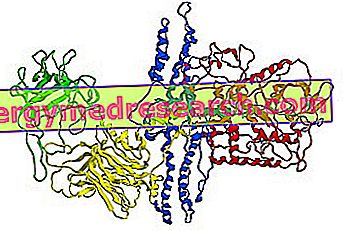Dietary supplementation is a developing science that raises many doubts to which it contrasts with few certainties. Although there are many opinions opposed to the spread of these products in amateur sports, the market for sports supplements is constantly expanding. This success is largely due to a clever advertising strategy, although no one can ignore the numerous studies that confirm the effectiveness of some products.
Despite the correct lifestyle and an adequate diet in particular situations, a sportsman might in fact need specific dietary supplements. Such situations, even if they are not as common as they would have us believe, can interest athletes with different nutritional and sports needs.
Supplements for Power Sports
(Weightlifting, body building, sprint competitions etc.)
- Creatine: improves recovery, increases the strength and explosiveness of the motor gesture, buffers acidosis and increases muscle mass (presumed effect not yet ascertained). Creatine deficiency can be registered in vegetarians, while those who take significant amounts of animal protein 9 times out of 10 do not benefit from integration.
- Protein and amino acid supplements: used for the purpose of increasing muscle mass, they can promote anabolism only if the diet fails to provide sufficient amounts of protein.
- Supplements of branched amino acids: they can promote recovery from particularly intense and prolonged training.
- Mineral salt supplements: a diet high in protein and low in dairy products can cause calcium deficiencies in the long run
Supplements for Resistance Sports
(Cycling, running, swimming, cross-country skiing etc.)
- Maltodextrins and derivatives: they become useful only in the case of prolonged physical effort (over 90 minutes). If this threshold is exceeded several times during the week, it is advisable to take about 30 g for each hour of competition. Absorption is optimal if they are added to moderately chilled water (about 10 °) with a percentage of maltodextrin ranging from 6 to 10% (60-100 grams per liter). It is also advisable to sip the drink a little at a time, avoiding drinking it all in one breath.
- Branched-chain amino acids (BCAAs): they are involved in metabolic processes through which energy is obtained from proteins. For this reason, the integration of branched amino acids is justified in the case of prolonged training, reduced dietary intake, intense and lasting races. As widely explained in the article: "energy metabolism in muscular work" the use of branched-chain amino acids becomes important only after 40-50 minutes from the beginning of physical endurance activity.
- Vitamin and salt supplements: even if the diet is correct and well balanced, in medium-high level sportsmen deficiencies of vitamins and mineral salts are not so rare.
- Carnitine: optimizes the metabolism of fat while saving muscle glycogen. Its effectiveness is controversial.



